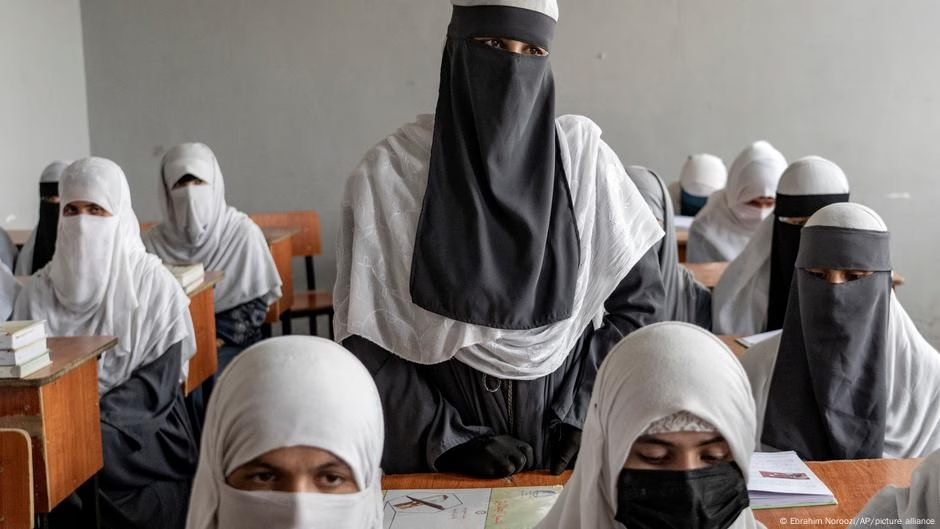In an official post on X, Chief Spokesman Zabihullah Mujahid stated, “The Islamic Emirate is fully committed to providing and safeguarding the rights of Afghan women.”
While not directly addressing International Women’s Day, Mujahid underlined that the Taliban government places a strong emphasis on the dignity, honor, and legal rights of women.
Afghanistan: Women become ‘invisible’ under Taliban
Mujahid claimed that Afghan women “live in security, both physically and psychologically,” and that their “fundamental rights,” such as autonomy in marital decisions, dowry entitlements, and inheritance are protected.
Ongoing global criticism
The Taliban’s assertion comes as the United Nations continues to criticize the severe restrictions imposed on Afghan women.
Since seizing control in 2021, the Taliban have implemented comprehensive bans on education and employment for women. Girls were prohibited from attending secondary education, and subsequently, from studying and teaching at Kabul University.
In August 2023, the Vice and Virtue Ministry extended these restrictions, banning women’s voices in public spaces and mandating full-face coverings outside of the home.
On Saturday, the UN once again called for the lifting of these bans, stating, “The erasure of women and girls from public life cannot be ignored,” as per Roza Otunbayeva, head of the UN mission in Afghanistan.
Alison Davidian, special representative for UN Women Afghanistan, emphasized, “We must stand with Afghan women as if our own lives depend on it — because they do.”
Mujahid noted differences in Afghan and Western conceptions of women’s rights, stating that “Afghan women’s rights are situated within the specific context of an Islamic and Afghan society, which exhibits distinct divergences from Western societies and their cultural paradigms.”
International pressure and the Taliban’s isolation
The Taliban remains globally isolated, with no official recognition as running Afghanistan’s government, due in part to their policies on women. In January, the International Criminal Court’s chief prosecutor requested arrest warrants for two senior Taliban officials for their role in suppressing Afghan women.
Last Friday, UNESCO hosted a high-level conference on women and girls in Afghanistan, featuring activists, parliamentarians, and rights experts, including Hamida Aman, founder of the women-only station Radio Begum, former Afghan lawmaker Fawzia Koofi, and human rights expert Richard Bennett, who has been barred from entering Afghanistan.
In response, Saif ul-Islam Khyber, a spokesman for the Vice and Virtue Ministry, dismissed such events, calling them “an exposure of the hypocrisy of certain organizations and European Union foundations.”
Edited by: Kieran Burke








